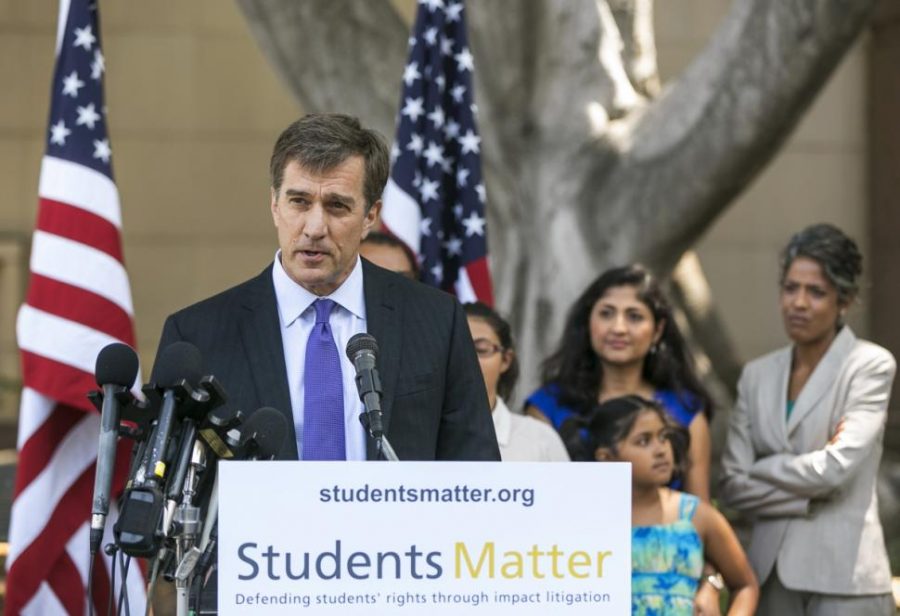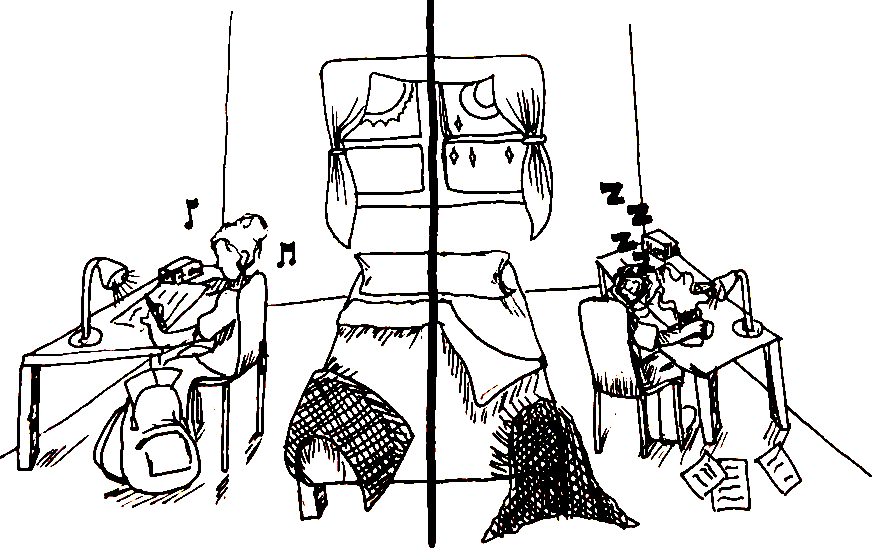Menlo parent David Welch recently financed a groundbreaking lawsuit targeting teacher tenure laws in California
Rory Plewman | Opinions Editor
Today during lunch David Welch, a Silicon Valley entrepreneur and Menlo parent, spoke to a portion of the Menlo student body and faculty about his involvement in the recent court case Vergara vs. California. This case was filed in May 2012 on the behalf of nine public school students who claimed to have been victims of teacher tenure laws in the LA Unified School District, and called for a reformation of this outdated, and ultimately destructive system.
To fully understand the issue we must first examine the current teacher tenure laws in California. Under the current tenure law public school teachers are granted permanent employment only 18 months into the job. Welch, who paid the legal fees of the nine public school students, believes firmly that California’s teacher tenure laws are not only destructive but in direct violation of the state’s constitution. He maintains that under the current teacher tenure laws poor teachers are protected and are shunted down the public education system’s food chain to languish in lower income, minority school districts. Welch argued that under this broken system, the students who require the most help in school are being taught by the teachers who care the least. Using data collected by Harvard economist Raj Chetty, Welch claimed that for every year spent with one of these bottom 5% tenure teachers, $50,000 in terms of potential earning power is wasted, due to a lack of proper basic education. Chetty also predicted that the poor education that some tenured teachers provide is costing California up to 20 billion dollars a year in lost revenue. Welch scored a major victory in the Vergara vs. California case when the Superior Court judge ruled in favor of striking down teacher tenure, and the current teacher tenure laws are currently being revised. Welch believes that this is a step in the right direction, but that we still have far to come. “The state needs to prioritize how to achieve [educational equality]. If they need to pay more money to obtain and keep good teachers, then that’s what they need to do. But the state needs to understand that their responsibility is to teach children, and teach all of them,” Welch stated in a recent Mercury news article.








